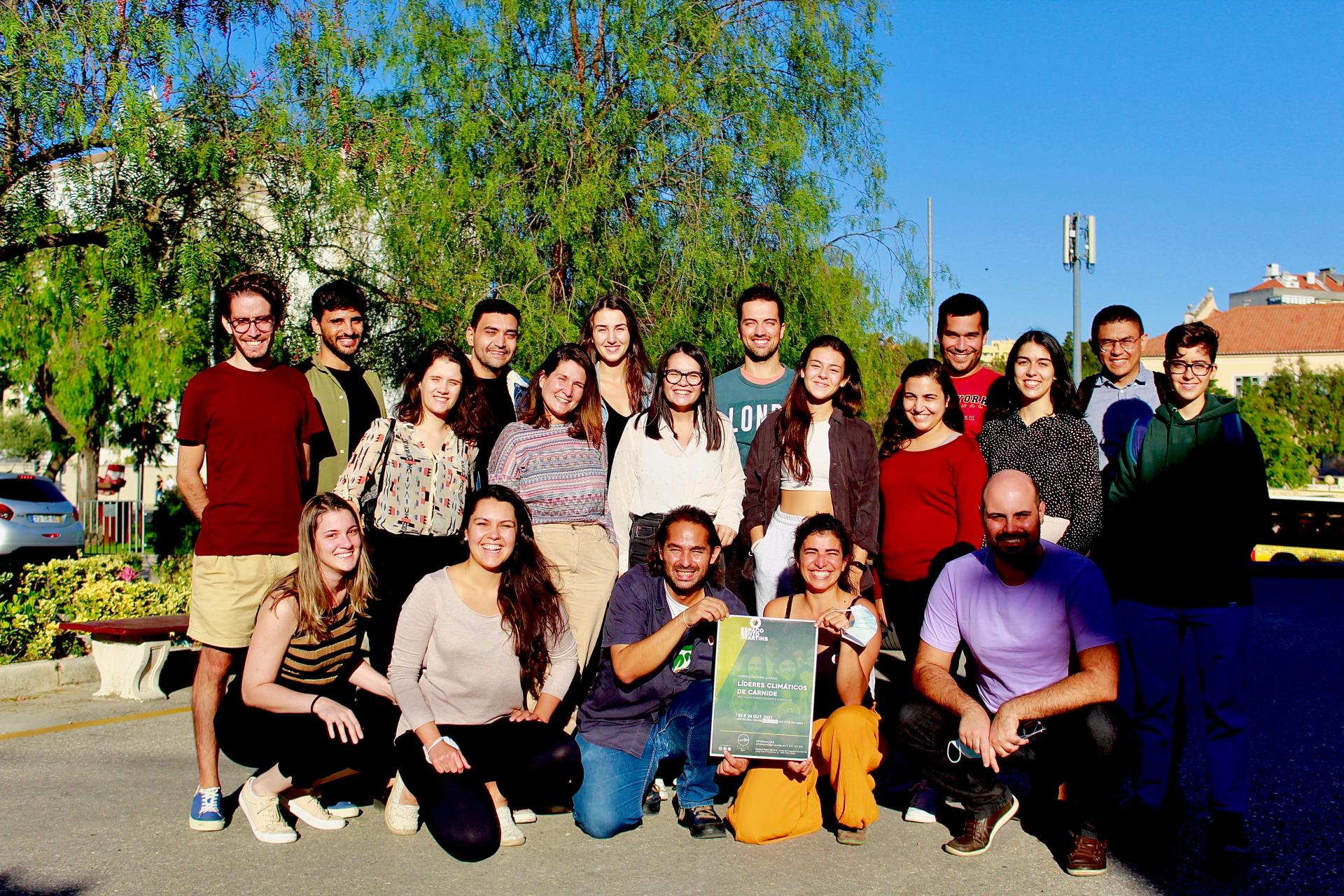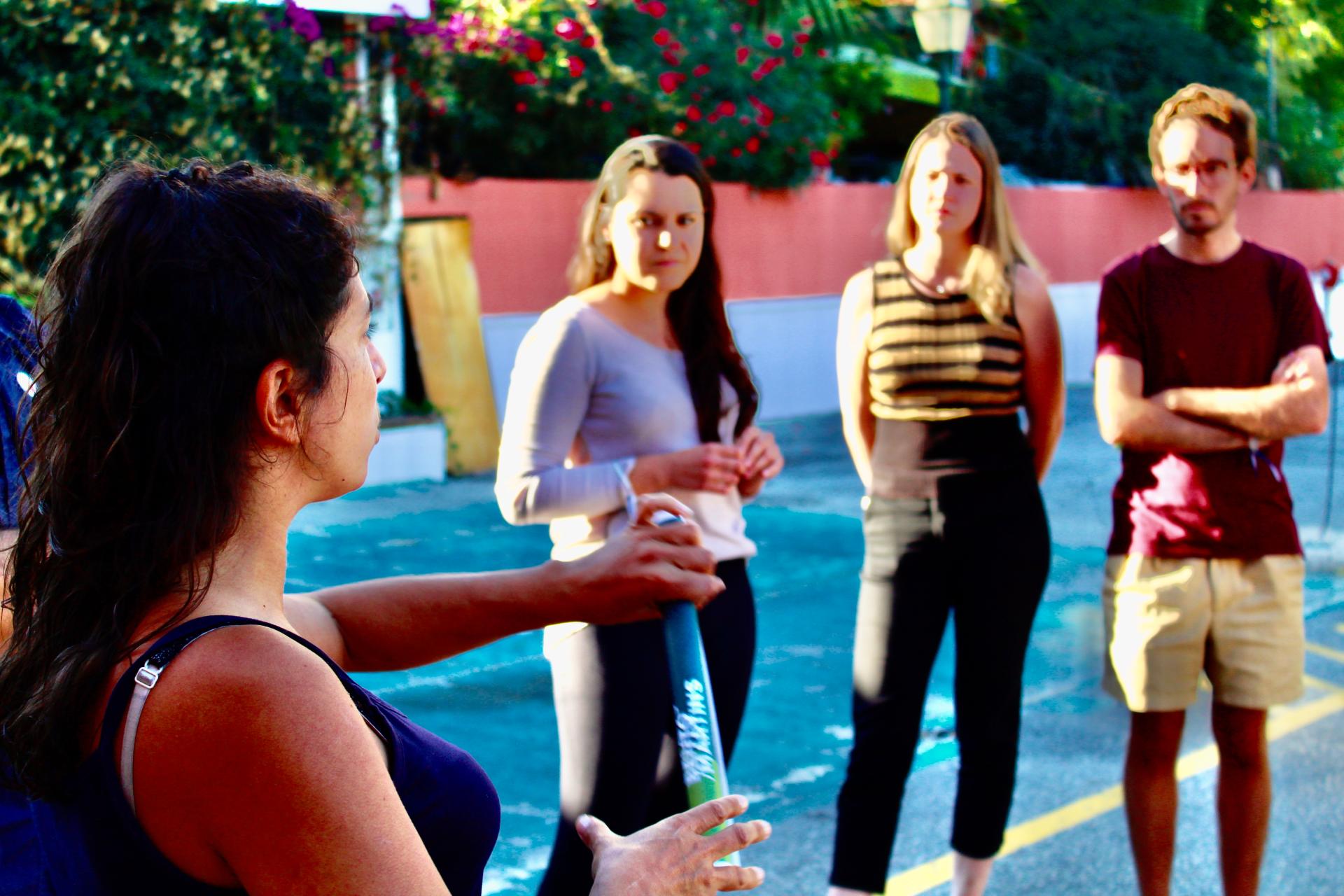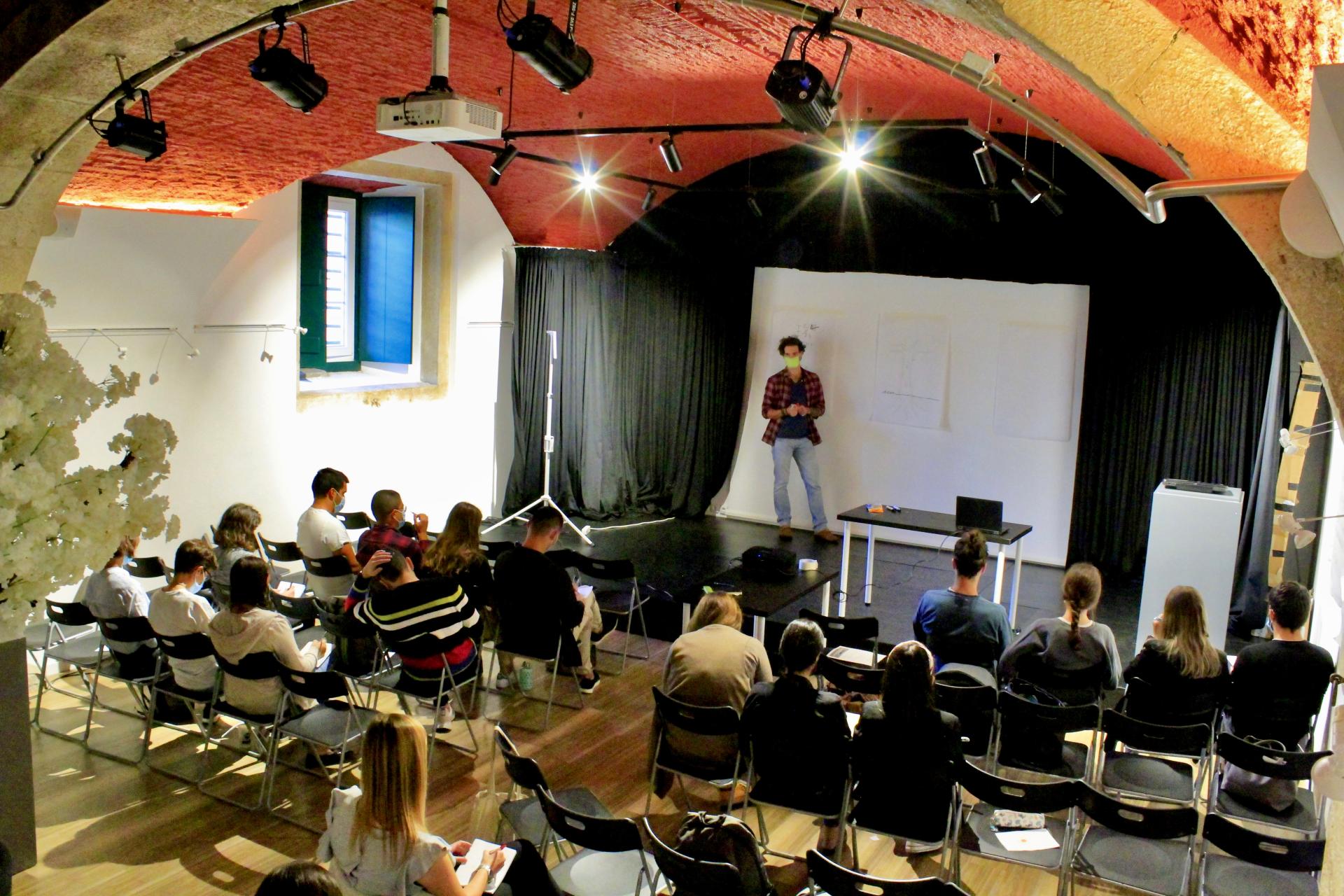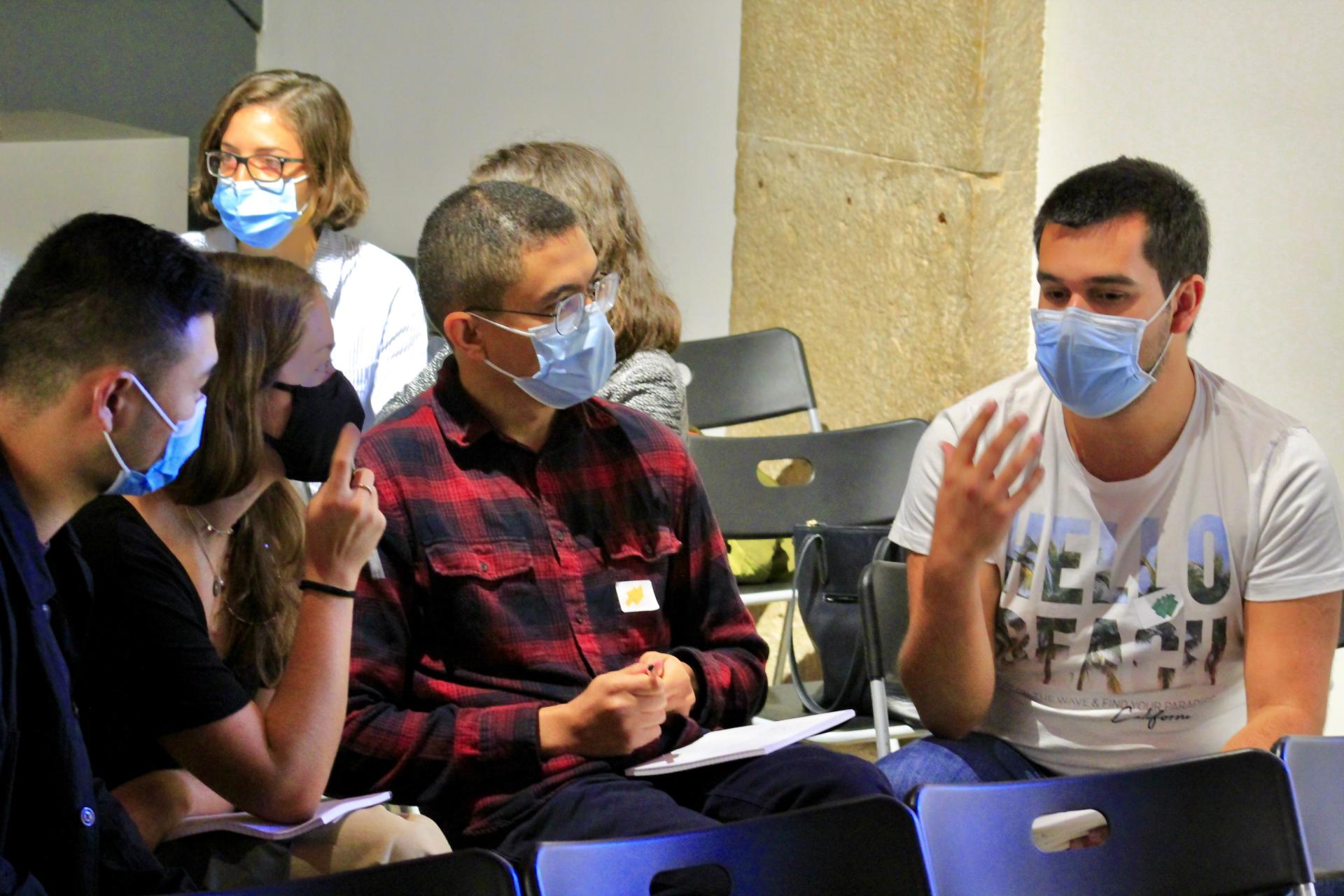Youth Climate Leaders
Basic information
Project Title
Full project title
Category
Project Description
A 16-hours hybrid training to empower young climate leaders in Carnide, Lisbon, with a special focus on ages of 15 to 30-years old and NEET (Not in Employment, Education nor Training). Participants learned about the Sciences of Climate Change, the future of work in a decarbonized society and the sustainability challenges of Carnide. Having access to Systems Innovations tools, they could learn in loco and propose practical projects and solutions to their own territory.
Geographical Scope
Project Region
Urban or rural issues
Physical or other transformations
EU Programme or fund
Which funds
Description of the project
Summary
The Training Young Climate Leaders in Carnide sought to reach 150 young residents in Lisbon, with a special focus on those living in the parish of Carnide between the ages of 15 to 30-years old. The training had as its main topic “climate change and the future of work in a decarbonized society” having a territorial focus to think about and design solutions at the local level. For the activity, we held one 4-hour online meeting and a face-to-face meeting held on a weekend (2 days, 6 hours per day = total 12 hours).
During the online training participants could learn and discuss the future of work in a decarbonized society. The guiding questions were: if we are in a world in transition to sustainability, what are the jobs and careers that will emerge with that? What are the skills we need for those opportunities? What are the changes needed in training and education? The meeting was also an opportunity to introduce them to the territory of Carnide with an interactive map and prepare them for the face-to-face meeting.
The face-to-face meeting started with a workshop about connecting their job aspirations with their purposes. After that they have an introduction to the Science of Climate Change followed by short presentations of experts on challenges related with waste management, energy efficiency, urban mobility and local food production. All the experts' presentations were followed by discussions with members from the Parish Council of Carnide, which could connect those themes with the local challenges of the territory. After that, participants got to know the Systems Innovations tools which helped them to co-create local projects and solutions to the territory of Carnide based on the topics presented during the training.
In the end participants could visualize the potentials of the local territories to design and create solutions at the same time it is tackling another challenge of this century: the youth unemployment.
Key objectives for sustainability
The overall objective of the project was to prepare the current generation of young people for the challenges posed by climate change and enable them to face them through training for the green job market, fostering the energetic transition, "climate emergency" and the challenges of green, social, inclusive and smart growth. In these "Climate Leaders Training" courses, the preferred recipients were young people, more specifically those who have just graduated and young people who are not in jobs, education, or training and are seeking professional placement or more experienced professionals who wish to make a career transition for areas with a positive impact on the environment.
The course was aimed at people who want to work on climate change or sustainable development in Portugal and need support to develop their skills and networks, both necessary to take their careers to the next level.
That’s why in terms of Sustainability, this project is completely connected with the preparation of the generation that are inheriting the challenges of this time, such as climate change and youth unemployment, and equipping them with the tools that are going to support them to tackle it.
Also during the implementation of the project sustainable criterias were used to guarantee a low impact training, such as: prioritizing the use of public transportation, bicycling and walking; offer exclusively vegan meals during the face-to-face training; and efforts to produce as much less waste as possible. Also use of the open spaces of the Parish of Carnide, such as squares and parks were prioritized to provide contact with the local green areas but also to avoid unnecessary energy use of, for example, electricity.
We believe that in this way this project can be an example by showing: 1) how to produce a sustainable low impact training; and 2) aiming to capacity the young generation to deal, tackle and be part of the sustainable solutions for this century.
Key objectives for aesthetics and quality
The key objectives in terms of aesthetics was to provide knowledge and sense of belonging to the Parish Council of Carnide and to conduct the participants to think, design and co-create sustainable solutions to the territory that have direct impact on its aesthetics.
From the projects proposed we had: 1) A cycle path connecting schools of the Parish of Carnide, making the area more bike friendly at the same time supporting students to commute by bicycle with safety. The proposal also could support the improvement of air quality and better contact and connection with the territory; 2) Energy efficiency in schools, providing training to young people about renewable energy and energy efficiency and teaching them to install solar panels. After that solar panels could be installed in the schools, providing at the same time awareness to students about sustainable energy; new aesthetic provided by the solar panels and more sustainable and cheaper energy source to the schools; 3) Raising awareness about consumerism by organizing in the territory events for exchange of clothes and other goods which can at the same time promote reduction of waste, circularity and contact with the territory, once the space for those meetings could be in public spaces of the Parish of Carnide; 4) Creating an organic food market where the population could be more in contact with those type of food production and have easier access to more sustainable and healthier options of eating. The market would also be an opportunity to bring the population to occupy public spaces of the Parish of Carnide and have more contact and a sense of belonging with the territory.
We believe that all the solutions proposed by the participants can be cited as examples of how sustainability and aesthetics are connected. This project could help to think about how occupying and resignificating spaces can promote a sense of belonging and care at the same time it promotes concepts of sustainability and circularity.
Key objectives for inclusion
Our target group were young people (15-30 years) from the city of Lisbon with a special focus on young NEET (Not in Employment, Education nor Training) who had preference in the inscriptions. We strongly believe that youth can foster the climate transition in Portugal, specially if it is possible to create and empower Youth Climate Leaders that, through school and local communities, can widespread knowledge and vision on this global issue, creating a more dynamic community and inspire the largest number of people through an inspiring and passionate vision.
According to the National Institute of Statistics (INE), there are currently more than 80 thousand Portuguese young people out of work. However, in 2019, the Portuguese Renewable Energy Association (Apren) announced that the renewable energy sector has the potential to generate up to 114 thousand new jobs by 2030 in the country. In other words, only the energy transition market in Portugal would have the potential to hire all unemployed young people in the country over that decade.
In parallel, the country is one of the most affected by the climate emergency in all of Europe, with impacts on agricultural production, tourism, public safety and the health of the population. Therefore, our proposal unites these two themes and proposes the solution of accelerating careers aimed at the transition to a carbon neutral society, which, in addition to mitigating and adapting Portugal to the challenges of the climate crisis, generates employment and income for the youngest - topics directly connected with accessibility.
Results in relation to category
The Parish of Carnide is one of the 24 parishes of the city of Lisbon. The parish councils are the decentralized government of the municipality of Lisbon, making decisions at the local level. Based in the north side of Lisbon, with an area of 3,69 km² and 22.415 inhabitants (census 2011), the region where Carnide is based faced in 10 years (2001-2011) a decrease of 23% of its young population (15-24 years old) and an increase of 26% of the elder population (above 65). It is clear that the region is facing challenges in keeping its young population in the territory.
That is why this project aimed to put together the challenges in training and empowering the young population of Carnide (but not only, also youth from Lisbon) at the same time using the environmental solutions and challenges of the territory to connect those youngsters with the area.
By doing that we had as impact and results: 1) the young population of Carnide closer to their territory and with more sense of belonging; 2) the young population aware of the career possibilities from the sectors of sustainability and climate change; 3) the participants have identified challenges and opportunities for their territories in terms of sustainability, aesthetics and inclusion; 4) the participants can spread the learning among their peers, families, colleagues and future co-workers.
As the project was already implemented, now we keep working to keep the young participants engaged and searching for possibilities of financing to make their projects become real. They youngsters are also invited to participate in events, presenting their ideas and networking with other young people.
How Citizens benefit
This project was only possible due to the partnership with the Parish Council of Carnide which more than provided space for the training and support on communication, opening their doors to the young people to come with their ideas and solutions. Once it is a challenge for Carnide to retain young people in the region, this project was a liaison between young dwellers of Carnide with the public managers of the Parish Council.
This project was designed by the Youth Climate Leaders team that is composed of environmental educators and scientists and partners from Universities and NGOs that provided practical cases and knowledge to inspire the participants. Everything was thought and planned in a way to inspire the young participants and call them to act at the same time promoting a sense of belonging in Carnide and also supporting them in visualizing a future where they can access job opportunities working in the transition to more sustainable societies.
By creating a team composed by representatives from Universities, NGOs and the Parish Council of Carnide and connecting them with the young participants we supported the creation of a network of support and future mentorship, counseling and opportunities for those young climate leaders. All the actors involved in this project were included in the Youth Climate Leaders’ online platform, where they can keep in contact, share information and knowledge, organize events and keep working on their ideas.
Physical or other transformations
Innovative character
All young people who have participated in this course have now access to the YCL Network, through which they will stay connected with young people from different countries, committed to tackling changes and through which they will have access to information about job opportunities in areas relating to the subject of climate change and sustainability.
Access to the YCL Network therefore increases the chances of young people taking part in the course to get a job placement. This course also has enormous potential to foster the emergence of new businesses, as it will bring together and train young people engaged in undertaking activities related to sustainability and climate emergency, expanding the project´s positive environmental impacts.
Compared to mainstream practices, our training has the distinction of fostering the emergence of leaders to deal with climate change. However, leadership training alone will not change the world. That is why, through our platform, these young people keep in touch with other climate leaders to enhance the impact of their ideas and actions. At the same time, we bring these young people closer to job openings where they can apply the knowledge acquired in the training and make a difference from this professional position.
Learning transferred to other parties
From the learning we had from this training, we realized how powerful and important it is. We had very positive feedback from the young people and we noticed that they remained engaged throughout. In addition, they understood the usefulness of the content and tools that we presented to them.
This is, therefore, a project that definitely can and should be replicated and carried out on a larger scale and in other locations. Among the lessons learned, we highlight the need to count on at least one month to disseminate the training.
In addition, the partnership with the Parish Council of Carnide was very positive, due to the institutional support we had and the reduction of costs with the availability of the Bento Martins Space. The Parish also keeps the door open for more initiatives and also for dialogues on how to implement the youngsters' projects created during this project. There is plenty of room to continue with the initiative.
For future training, we intend to deepen the partnership with the Parish Council of Carnide and with other Parish Councils with which we already have a cooperation agreement, such as Santa Cruz, in Madeira Island. In addition, we intend to approach other parishes, to extend the reach of the project throughout the Portuguese territory. Some participants themselves already approached us asking for support on how to bring similar initiatives to their neighborhoods. Which creates expectations on the interest of the participants to keep working on what we have built with them and also how they from now on feel themselves as part of this initiative. From YCL’s side, we are already searching and applying for other calls for projects willing to keep working on this initiative and creating opportunities to keep participants engaged.





